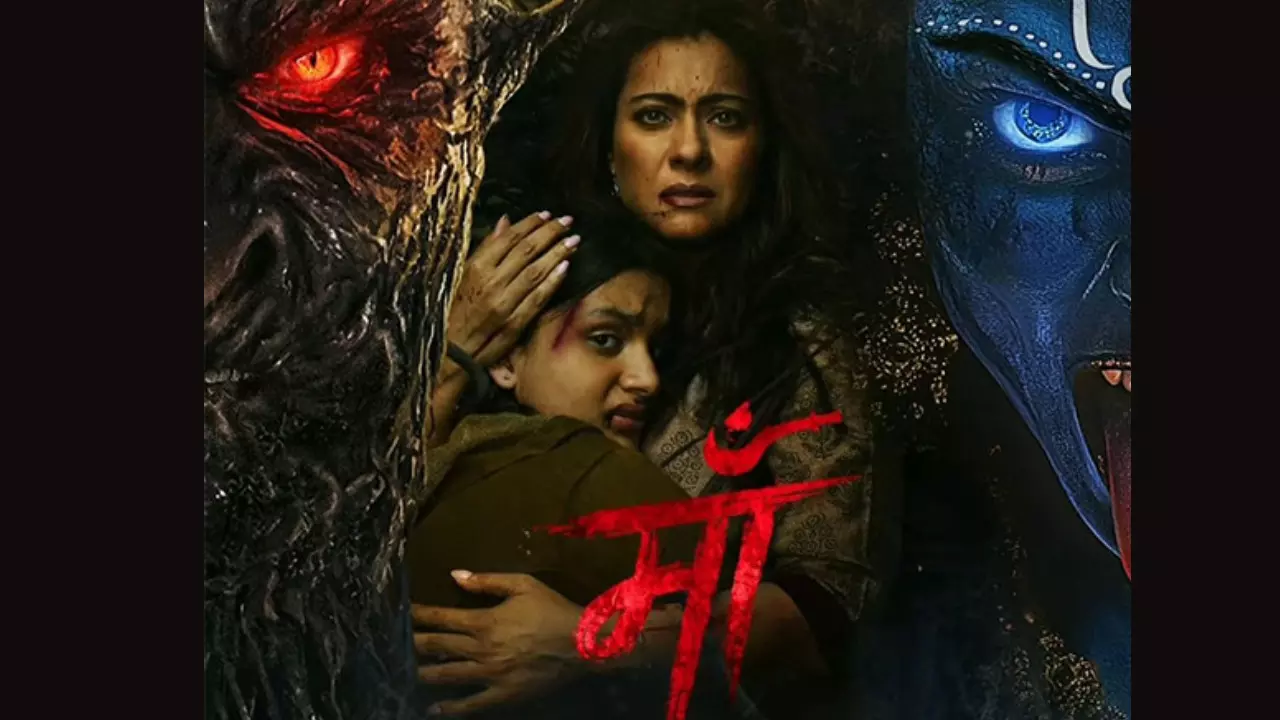Kajol Shines in 'Maa', a Visually Stunning Horror That Doesn’t Quite Hit Home

Kajol taking on dark forces to save her daughter? That’s a pitch that instantly grabs attention—and for a while, Maa really does pull you in. It’s rich in atmosphere, leans heavily into Indian mythology, and gives horror a polished, high-gloss finish we rarely see in Hindi cinema. You’re left with a story that feels all too familiar, once you get past the eerie visuals and the dramatic setup,
The plot follows a predictable path: a mother with a haunted past, a child in danger, a cursed creature, and eventually, a divine awakening. We’ve seen versions of this before, and despite its promising setup, Maa doesn’t take many risks. The horror beats—jump scares, twists, tension—are all present but feel formulaic, which takes away from the emotional punch the story tries so hard to land.
What does work, though, is the film’s visual world. Vishal Furia builds a dark, dreamlike space filled with shadowy figures, haunting creatures, and beautifully eerie frames. At times, it feels like you’ve stepped into a living graphic novel. If visuals could carry a film entirely, Maa would soar. But horror needs more—it needs to unsettle, to surprise, and most of all, to make you feel something deeper than just awe.
One of the film’s more refreshing choices is spotlighting Goddess Kaali—a shift from the usual cinematic depictions of Durga. It adds a raw, intense energy to the story, and ties in with the themes of rage, power, and motherhood. Kajol completely owns the role. She brings a fierce emotional honesty to her character—you believe her fear, her fury, and her fight. In many ways, it’s her performance that keeps you invested, even when the plot starts to drag.
But Maa isn’t without its flaws. The Bengali setting, instead of feeling authentic, falls into tired stereotypes—overdone accents, cliched character traits, and a lack of cultural nuance that borders on caricature. Ronit Roy, though compelling in parts, struggles with the accent in a way that distracts more than it adds. In contrast, Indraneil Sengupta brings quiet strength to his small role, reminding us he deserves more screen time than he’s getting.
Young actors Kherin Sharma and Rupkatha Chakraborty show promise, and there’s a lovely emotional touch in the end credits—listing cast and crew alongside their mothers’ names. It’s simple but deeply meaningful, especially in a film so centered on the mother-child bond. The use of Jubin Nautiyal’s Humnava Mere is another standout—it adds a gentle ache to the film, elevating key emotional moments without feeling overdone.
There’s a lingering frustration, though. Indian horror still seems to teeter between melodrama and mythology, often skipping over the psychological complexity that truly scares us. Maa had all the elements to dig deeper but settles for what’s familiar. It looks beautiful, and Kajol gives it her all—but in the end, it’s not enough to make it unforgettable.
Maa isn’t a bad film—it’s just one that plays it safe when it could have been something bold. And like her character, Kajol tries to save it. She almost does. Almost.
